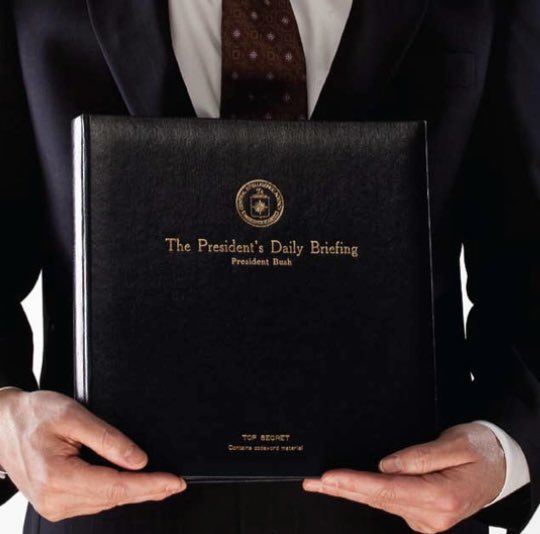THREAD: As each year ends, I look back at the books I’ve read/re-read or listened to across 12 months.
I’ve read a lot this year—and thought I’d share my list in categories, alphabetically by author within each.
I recommend every one of these books and thank all authors.
1/12
I’ve read a lot this year—and thought I’d share my list in categories, alphabetically by author within each.
I recommend every one of these books and thank all authors.
1/12
Books I read in 2022 (history, part 1):
Lincoln and the Fight for Peace by @JohnAvlon
SPQR by @wmarybeard
Grant by Ron Chernow
Washington by Ron Chernow
The Cabinet by @lmchervinsky
Behold, America by @sarahchurchwell
The Wrath To Come by @sarahchurchwell
2/12
Lincoln and the Fight for Peace by @JohnAvlon
SPQR by @wmarybeard
Grant by Ron Chernow
Washington by Ron Chernow
The Cabinet by @lmchervinsky
Behold, America by @sarahchurchwell
The Wrath To Come by @sarahchurchwell
2/12

Books I read in 2022 (history, part 2):
The Craft: How Freemasons Made the Modern World by @JohnDickie1
Lincoln by David Herbert Donald
The Future History of the Arctic by @charlesemmerson
Adams vs. Jefferson by John Ferling
The Field of Blood by @jbf1755
3/12
The Craft: How Freemasons Made the Modern World by @JohnDickie1
Lincoln by David Herbert Donald
The Future History of the Arctic by @charlesemmerson
Adams vs. Jefferson by John Ferling
The Field of Blood by @jbf1755
3/12

Books I read in 2022 (history, part 3):
Watergate by @vermontgmg
Reagan’s War Stories by @bengriffin06
Destination Casablanca by @CapitolClio
The Peacemaker by Will Inboden
Imperfect Union by @NPRinskeep
Hokkaido: A History by Ibrahim Jalal
4/12
Watergate by @vermontgmg
Reagan’s War Stories by @bengriffin06
Destination Casablanca by @CapitolClio
The Peacemaker by Will Inboden
Imperfect Union by @NPRinskeep
Hokkaido: A History by Ibrahim Jalal
4/12

Books I read in 2022 (history, part 4):
Plagues and Their Aftermath by @BrianMJenkins
Ancient Rome by Thomas Martin
True or False by Cindy Otis
A Man of Iron by @troy_senik
Terrorism in American Memory by Marita Sturken
Misinformation Nation by @PubliusorPerish
5/12
Plagues and Their Aftermath by @BrianMJenkins
Ancient Rome by Thomas Martin
True or False by Cindy Otis
A Man of Iron by @troy_senik
Terrorism in American Memory by Marita Sturken
Misinformation Nation by @PubliusorPerish
5/12

Books I read in 2022 (intelligence/natsec/politics, part 1):
Why We Fight by @cblatts
Analyzing Intelligence ed. by Roger George & James Bruce
Intelligence and the State by Jonathan House
MBS by @NYTBen
Truth to Power, ed. by Robert Hutchings & Gregory Treverton
6/12
Why We Fight by @cblatts
Analyzing Intelligence ed. by Roger George & James Bruce
Intelligence and the State by Jonathan House
MBS by @NYTBen
Truth to Power, ed. by Robert Hutchings & Gregory Treverton
6/12

Books I read in 2022 (intelligence/natsec/politics, part 2):
A Question of Standing by Rhodri Jeffreys-Jones
The Devil Never Sleeps by @juliettekayyem
The Peaceful Transfer of Power by @DavidMarchick
The Oil Wars Myth by @EMeierding
Why We Did It by @Timodc
7/12
A Question of Standing by Rhodri Jeffreys-Jones
The Devil Never Sleeps by @juliettekayyem
The Peaceful Transfer of Power by @DavidMarchick
The Oil Wars Myth by @EMeierding
Why We Did It by @Timodc
7/12

Books I read in 2022 (intelligence/natsec/politics, part 3):
Black Ops by @RicPrado2
Challenges in Intelligence Analysis by Timothy Walton
The Spymasters by @ccwhip
Spies, Lies, and Algorithms by @AmyZegart
8/12
Black Ops by @RicPrado2
Challenges in Intelligence Analysis by Timothy Walton
The Spymasters by @ccwhip
Spies, Lies, and Algorithms by @AmyZegart
8/12

Books I read in 2022 (science):
A Taste of Poison by Neil Bradbury
A Furious Sky by @EricJayDolin
How We Know What Isn’t So by Thomas Gilovich
Fire and Flood by Eugene Linden
The Moon by @Eaterofsun
The Loop by @byjacobward
9/12
A Taste of Poison by Neil Bradbury
A Furious Sky by @EricJayDolin
How We Know What Isn’t So by Thomas Gilovich
Fire and Flood by Eugene Linden
The Moon by @Eaterofsun
The Loop by @byjacobward
9/12

Books I read in 2022 (other nonfiction):
Spies on the Sidelines by @kevbryantauthor
Not Dead Yet by @PhilCollinsFeed
The Games by @Davidsgoldblatt
Bigfoot … It’s Complicated by @RepRiggleman
A Different Way to Win by Jim Rooney
10/12
Spies on the Sidelines by @kevbryantauthor
Not Dead Yet by @PhilCollinsFeed
The Games by @Davidsgoldblatt
Bigfoot … It’s Complicated by @RepRiggleman
A Different Way to Win by Jim Rooney
10/12

Books I read in 2022 (fiction):
Childhood’s End by Arthur C. Clarke
Victor in Trouble by @alexzfinley
Damascus Station by @mccloskeybooks
Black Ice by @BradThor
Rising Tiger by @BradThor
The Chronoliths by Robert Charles Wilson
11/12
Childhood’s End by Arthur C. Clarke
Victor in Trouble by @alexzfinley
Damascus Station by @mccloskeybooks
Black Ice by @BradThor
Rising Tiger by @BradThor
The Chronoliths by Robert Charles Wilson
11/12

In 2023, I hope to read/listen to just as many great books.
I also hope that, after a challenging couple of years, I’ll make progress on research and start writing my own next book.
Stay tuned.
#HappyNewYear
I also hope that, after a challenging couple of years, I’ll make progress on research and start writing my own next book.
Stay tuned.
#HappyNewYear
• • •
Missing some Tweet in this thread? You can try to
force a refresh










